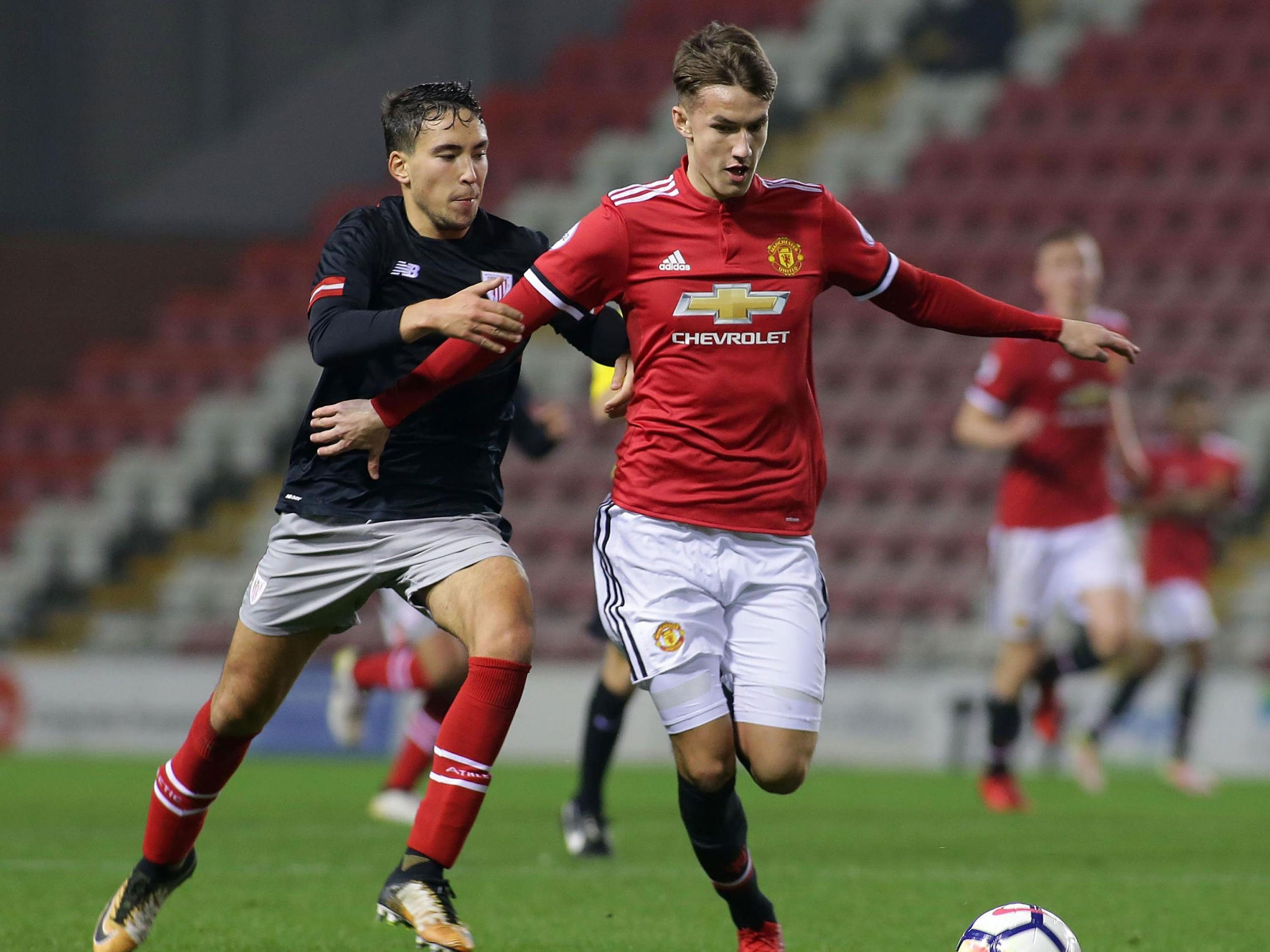Manchester United's Under-23s have been relegated but does success at youth level really matter?
Should clubs prioritise winning at youth level or developing players?

What is the purpose of a Premier League club’s youth set-up? To develop players for the first team or to win?
That is the debate that you might expect was had in the halls of Carrington on Tuesday morning, a few short hours after Manchester United’s Under-23s side suffered an ignominious relegation.
With a single round of fixtures remaining in the Premier League 2 First Division season, a side managed by Sir Alex Ferguson’s former reserve-team coach Ricky Sbragia sit bottom of the table, having won just four of their 21 games so far, taking 19 points in total.
A 1-0 win for Derby over West Ham on Monday night meant that the three points United could take from their final outing against defending champions Everton will not be enough to save them. They will play in the competition’s second tier next year.
Who could leave Manchester United this summer?
Show all 9This relegation is undoubtedly an embarrassment to a club with the wealth and resources of United, not to mention one that for so long has been the byword for success in youth football.
But that link between the senior and youth set-up – represented by the 80-year, 3,916-game streak of an academy player always being in selected in the first-team squad – is also why this underachievement will not be met with a sense of panic or taken as a sign of terminal decline.
Over the last few weeks, since the Under-23s’ demotion became all but certain, Nicky Butt has set his stall out clearly in the national media. “If players are not in or around the first team by 20, 21, they won’t make it here,” the head of United’s academy told The Times when asked about the Under-23s before the recent Manchester derby.
That may sound like a rather blunt assessment of young players in his care but it is a fair one, and the same words could just as easily apply to many of their contemporaries at the opposite end of the PL2 table, fighting it out for the title.
Aside from the under-18s promoted beyond their age and those in their final year of adolescence, few players who find themselves in the Under-23s of any top club can hope of still making that final step to the first-team squad.
It is what is always was – the reserves, just renamed and rejigged, and the smattering of unwanted over-23 senior players adds to the sense that the PL2 is a halfway house which offers those beyond a certain age little incentive to improve.
Butt says that United instead concentrate their youth development efforts on younger age groups, and his claim is not just a diversionary tactic. Liverpool’s Kirkby academy takes a similar approach. It is just common sense. Teenage players are more malleable, more open to new ideas and have the time required to grow, in more than just the physical sense.
All this does not absolve the Under-23s’ wretched season, the causes of which range from previous years of underinvestment to simple underperformance, but the problem with judging youth football solely on its competitive returns is revealed by a comparison of Sbragia’s side and United’s Under-18s.
Coached by the young and highly-rated Kieran McKenna, who is in his debut year in charge, the Under-18s were confirmed as regional champions with their 2-1 victory over Manchester City at the weekend. They play Chelsea in a national final next month.
Yet plenty of McKenna’s promising under-18 players will graduate next year to find themselves competing at a lower standard, through no fault of their own. This will partly be due to the failures of their elders’ this season, but mainly because of the insistence on a promotion/relegation element in a competition that is supposed to be about development.
The fortunes of young players are so often dependent on external factors outside of their control and it is easy to write groups of them off when it is their personal progress that counts. That, in a nutshell, is why Butt is right to think of success and failure in his job in terms of how many individuals reach Jose Mourinho’s starting line-up, rather than how many United youth teams win trophies.
The emphasis at Carrington has always been on the former rather than the latter and this moment of embarrassment is unlikely to change that.
Subscribe to Independent Premium to bookmark this article
Want to bookmark your favourite articles and stories to read or reference later? Start your Independent Premium subscription today.

Join our commenting forum
Join thought-provoking conversations, follow other Independent readers and see their replies